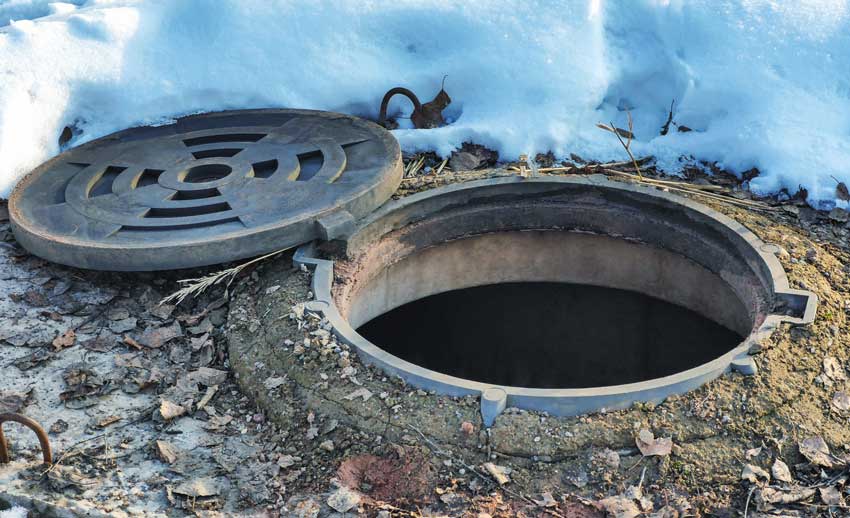
Proper preparation of your septic system for winter is crucial to ensure its functionality and longevity during the cold months. Freezing temperatures and increased household water usage during the holiday season can place significant stress on your system. Taking the following steps can help avoid costly repairs and maintain optimal performance.
Inspect and pump the tank
Schedule a professional inspection and, if necessary, pump the septic tank before winter. Removing accumulated solids ensures there is enough space for waste to be processed and reduces the risk of backups. Fall is an ideal time for this maintenance since ground conditions are more accessible before freezing.
Check for leaks and repair issues
Inspect your plumbing fixtures, pipes, and the septic system for leaks or signs of damage. Addressing minor problems now prevents them from worsening during winter when repairs can be more challenging. Ensure the system’s components, including the distribution box and drain field, are in good condition.
Protect the drain field
The drain field is especially vulnerable to freezing temperatures. Avoid parking vehicles or placing heavy objects on it, as compacted soil reduces its efficiency. Enhance insulation by adding a layer of mulch, straw, or hay over the field and tank. This additional coverage helps retain ground heat, reducing the risk of freezing.
Conserve water
High water usage in winter can overwhelm your septic system, particularly if it’s older or nearing capacity. Install water-saving devices like low-flow toilets and showerheads, and encourage mindful water use among household members. Spread out laundry loads and avoid excessive usage of dishwashers and other appliances.
Direct water away from the system
Ensure that rainwater, melting snow, and surface runoff are directed away from the septic system, particularly the tank and drain field. Divert downspouts and clear ditches to prevent water saturation, which can compromise the system’s efficiency.
Insulate above-ground components
Exposed pipes and other above-ground system components are susceptible to freezing. Use foam pipe insulation or specialized wraps to protect them. Check for exposed areas around the access riser or tank lid and seal them securely.
Avoid using antifreeze
While it might seem like a good idea to use antifreeze in a septic system to prevent freezing, it can disrupt the bacterial balance crucial for waste breakdown. Instead, focus on proper insulation and maintenance.
By taking these proactive steps, you can safeguard your septic system against winter-related issues and ensure it continues to operate effectively throughout the season.

